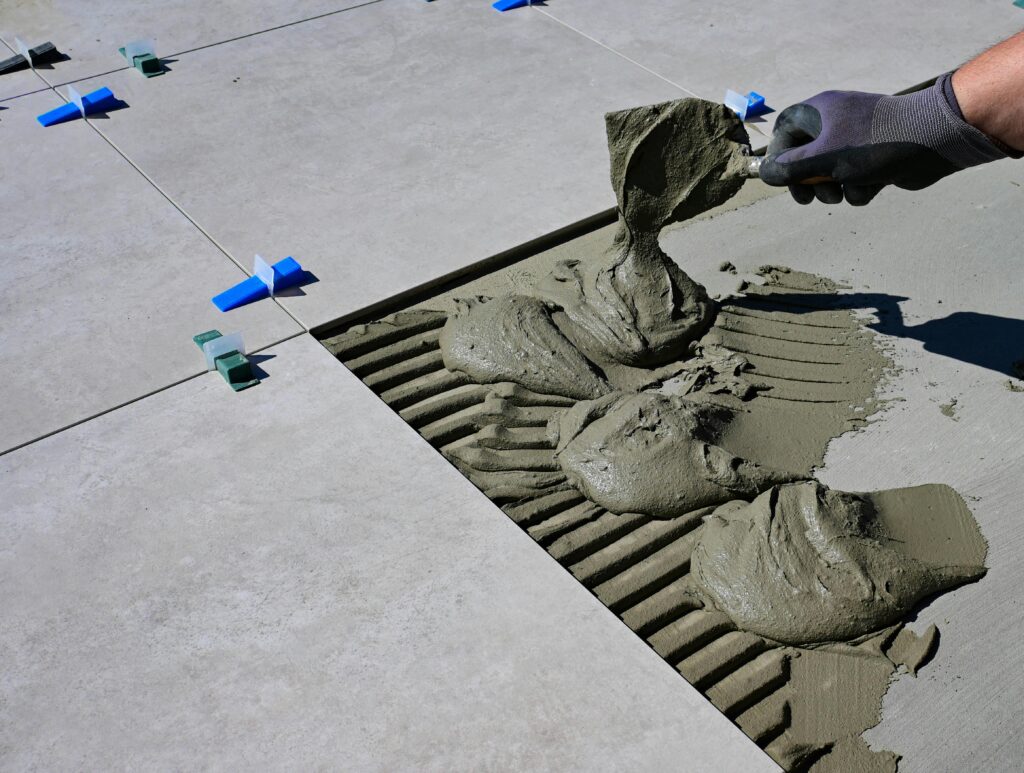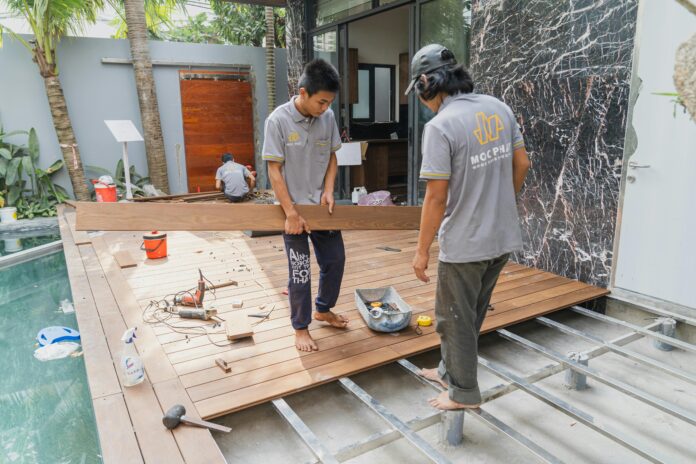Introduction
Choosing between DIY flooring installation and hiring professional flooring services is a critical decision when upgrading your home. Both options come with their own set of advantages and disadvantages, depending on your budget, time, and the type of flooring you’re installing. DIY flooring installation can save you money and give you control over the process, but it requires time, effort, and knowledge. On the other hand, hiring professional flooring services ensures expert results, efficiency, and often a warranty, but at a higher cost. Let’s explore which option might be best for your next flooring project.
Must-Have Tools and Expert Tips for a Flawless DIY Flooring Installation

If you’re considering DIY flooring installation, having the right tools and knowledge is key to achieving professional-looking results. First, ensure you have basic tools like a tape measure, utility knife, and a level. For specific flooring types, you may need additional tools such as a flooring nailer for hardwood or a tile cutter for ceramic. Preparation is also crucial—start by thoroughly cleaning the subfloor and checking for any uneven surfaces. Take accurate measurements to avoid mistakes when cutting the flooring material. By investing time in preparation and using the proper tools, your DIY flooring installation can save you money and provide a rewarding experience.
1. DIY Flooring Installation
Pros:
Cost Savings
The most obvious benefit of DIY flooring installation is the potential to save money. Labor costs often represent a significant portion of the total cost of flooring installation. By doing the work yourself, you eliminate those expenses, making DIY an attractive option for homeowners on a tight budget. If you’re simply replacing existing flooring with something easy to install, like laminate or vinyl planks, the savings can be substantial.
Control Over the Project
Choosing a DIY installation gives you full control over every detail of the project, from the timeline to the materials, allowing you to customize the process to your preferences. You can work at your own pace, choose your own tools, and make adjustments as you go. There’s no need to coordinate schedules with a contractor, and you can tailor the process to fit your preferences and timeline. This level of control is ideal for homeowners who enjoy home improvement projects and want to be hands-on throughout the process.
Cons:
Time-Consuming
One of the biggest drawbacks to DIY flooring installation is the time it takes to complete. Even relatively simple flooring materials can take significantly longer to install without professional experience. If you’re working full-time or balancing other commitments, it can be challenging to set aside enough time to get the job done quickly. Depending on the size of the area you’re working on, a project that could take professionals a day or two may take a DIYer several weekends to complete.
Risk of Mistakes
Unless you’re experienced in flooring installation, there’s a good chance you’ll make mistakes along the way. Small errors—like not aligning the flooring correctly, failing to prepare the subfloor properly, or miscalculating the amount of material needed—can lead to unsightly results or even damage to the flooring itself. For certain types of flooring, such as hardwood or tile, mistakes can be particularly costly to fix.
2. Professional Flooring Installation
Pros:
Expertise and Precision
The most significant advantage of hiring professional flooring installers is their expertise. Professional installers are experienced in working with a wide variety of flooring materials, from hardwood to laminate to tile. Their skill and precision ensure that the flooring is installed correctly the first time, minimizing the risk of mistakes or poor workmanship.
Efficiency
Another major benefit of hiring professionals is the speed and efficiency with which they can complete the job. Professional installers have the tools, experience, and manpower to complete the project quickly and correctly. What might take a DIYer several weekends to finish could take professionals just a day or two.
Cons:
Higher Costs
The most significant downside to hiring professionals is the added cost of labor. Professional installation can significantly increase the total cost of your flooring project, particularly for more labor-intensive materials like tile or hardwood. While the quality of work and the peace of mind are often worth the expense, this option may be out of reach for homeowners working with a limited budget.
3. Flooring Material Considerations
When deciding between DIY and professional installation, it’s important to consider the type of flooring material you’re working with. Some materials are easier to install than others, and certain projects may require professional expertise.
Laminate and Vinyl
Laminate and luxury vinyl planks (LVP) are among the easiest types of flooring to install, making them ideal for DIY projects. These materials often come with click-lock installation systems, which allow the boards to snap together easily without the need for nails or adhesives. With proper preparation, even inexperienced DIYers can achieve professional-looking results.
Hardwood
Hardwood flooring requires more precision and expertise during installation, especially if you’re working with solid hardwood that needs to be nailed or glued down.Errors in installation can result in uneven surfaces, gaps between the boards, or even cause the floor to squeak over time, affecting both appearance and functionality. Additionally, hardwood needs to be acclimated to the home’s humidity levels before installation, which adds complexity to the process.
4. Which Option is Right for You?
Ultimately, the choice between DIY and professional flooring installation depends on several factors:
- Budget: If your primary goal is to save money, DIY may be the best option, particularly for easy-to-install materials like laminate or vinyl.
- Skill Level: If you’re comfortable with home improvement projects and have experience with flooring installation, DIY can be a rewarding option. However, if you lack experience, professional installation might save you time and frustration.
- Project Complexity: For complex materials like hardwood, tile, or carpet, hiring professionals is often the best choice to ensure quality and longevity.
Conclusion
Both DIY and professional flooring installation have their advantages and disadvantages. DIY installation can save you money and give you a sense of accomplishment, but it can also be time-consuming and challenging. On the other hand, professional installation offers expertise, efficiency, and peace of mind, but at a higher cost. By considering your budget, skill level, and the complexity of the flooring material, you can determine the best option for your flooring project.














